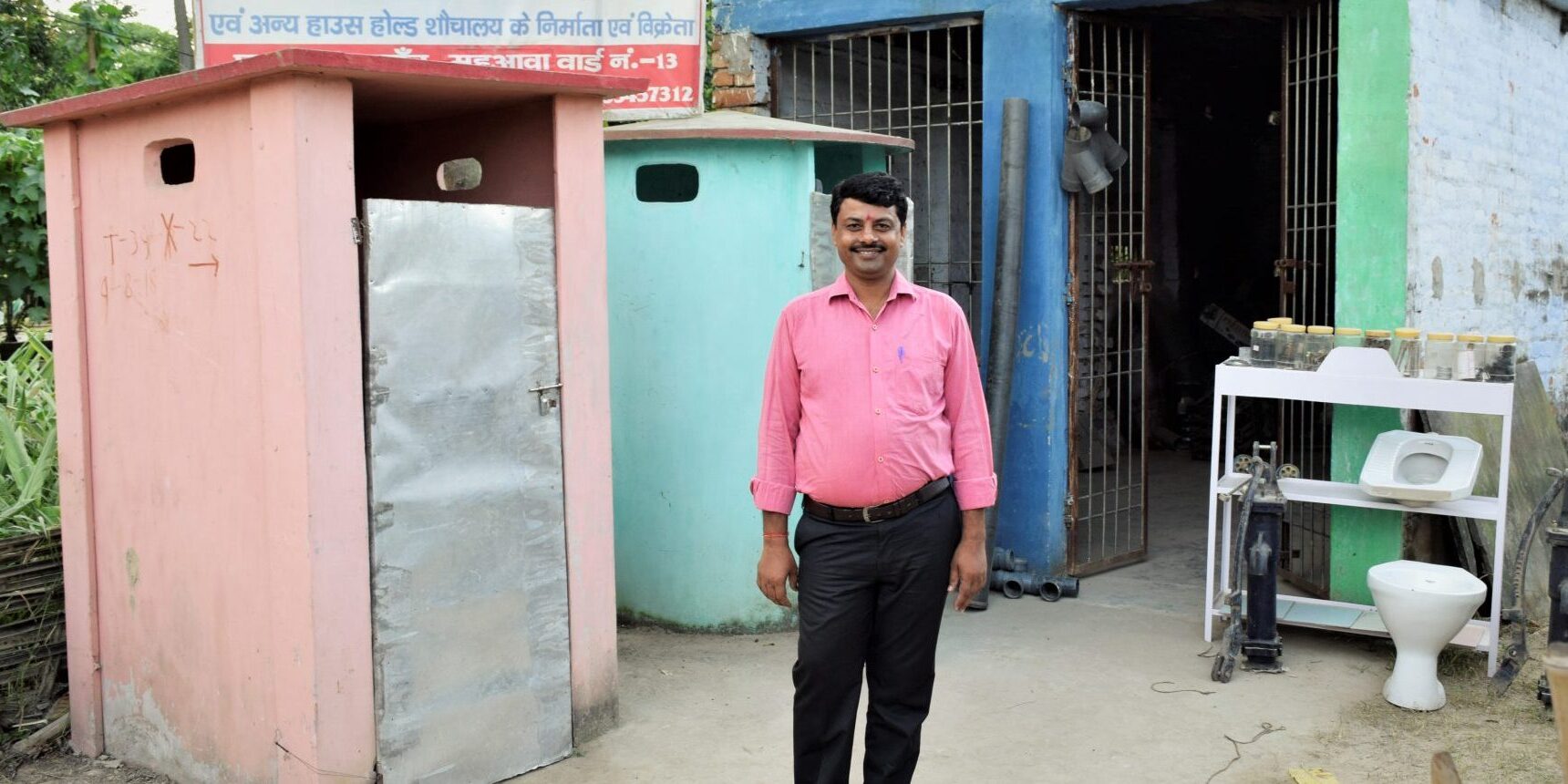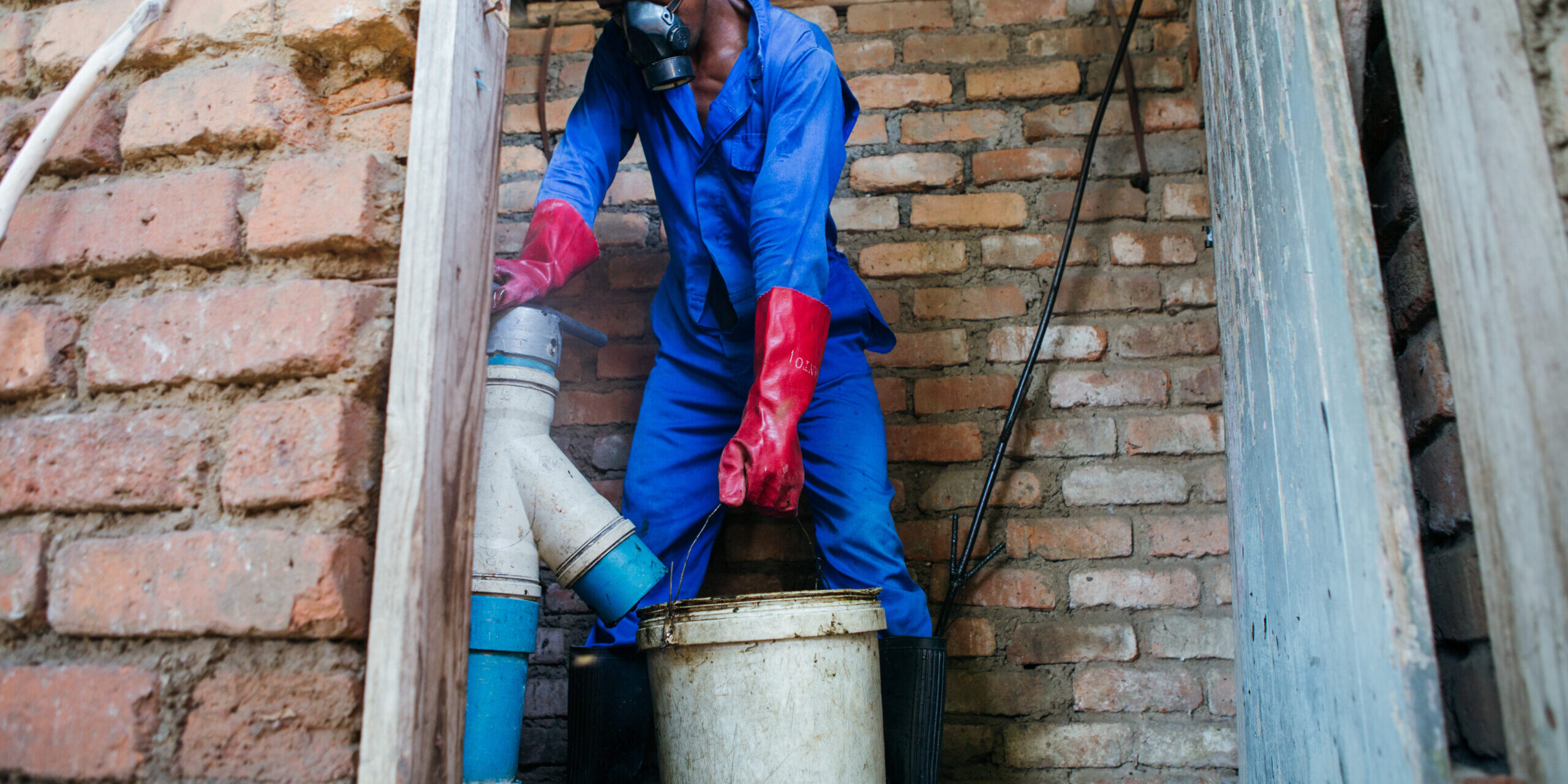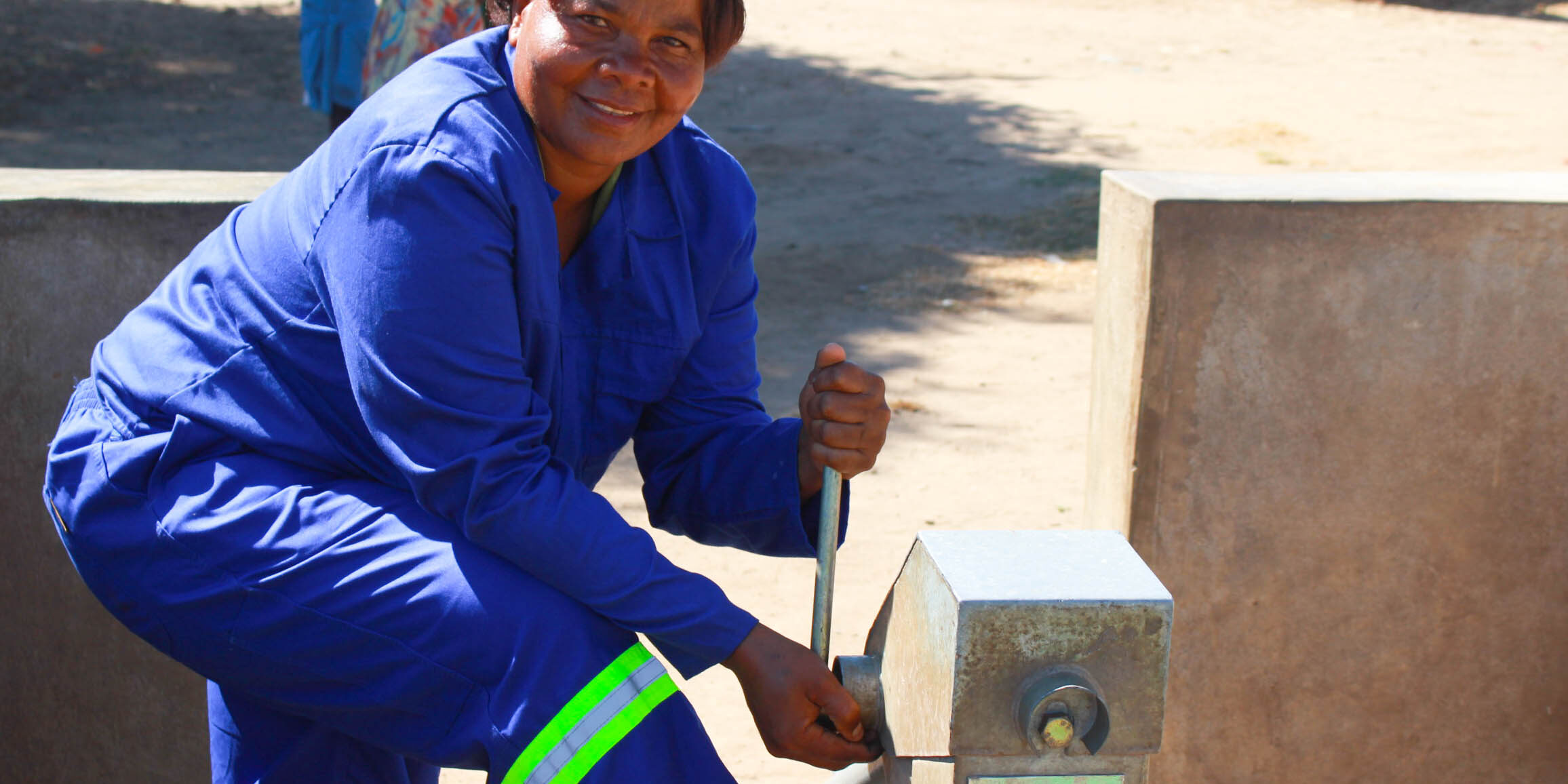Livelihoods
How Water and Sanitation Impact Economic Opportunities and Livelihoods

High poverty often overlaps with low access to drinking water and sanitation.¹ Access to safe water and well-managed bathrooms can lead to improved health, saved time, and further education – all creating more economic opportunity for people.
A major component of Water For People’s approach to ensuring sustainable sanitation is supporting locally-led businesses. Entrepreneurs fill a gap in the market, providing families with safe, affordable, and uninterrupted sanitation services because providers are local, not miles away. And by connecting people with microfinance institutions, more families can access the funds to construct their bathrooms.
Globally, 1.6 billion people live in hotspots marked by high poverty and low water and sanitation access. This figure is projected to double by 2050 if current trends continue.¹
Tackling diarrhea worldwide can generate $86 billion per year in increased productivity and reduced health costs.²
The annual economic value of water and freshwater ecosystems is estimated to be $58 trillion – equivalent to 60% of global Gross Domestic Product (GDP).³
"Gaps in access to water supply and sanitation, growing populations, more water-intensive patterns of growth, increasing rainfall variability, and pollution are combining in many places to make water one of the greatest risks to economic progress, poverty eradication, and sustainable development."
– The World Bank Group
What the Crisis Looks Like
Water's crucial role in shared prosperity and inclusive growth
A new joint publication between the World Bank and the Indonesian government, Water for Shared Prosperity , explores the connection between water and inclusive growth, providing insights that can inform practical solutions to the crisis and better ways of managing our precious water resources.
Harnessing the economic benefits of investment in water, sanitation and hygiene in Africa
1. Investing in water, sanitation and hygiene (WASH) not only serves as a fundamental necessity for public health, education and societal benefits but also generates substantial economic returns of up to 700%. Every US$1 invested in climate-resilient water and sanitation returns at least US$7 for African economies.
The High Cost of Cheap Water
Water is the world's most precious resource. Healthy freshwater ecosystems underpin our societies and economies and are central to tackling the global climate and nature crises. Yet they have been consistently undervalued - fuelling their destruction and exacting a profound toll on people and planet.
Sixto puts on his hard hat as he prepares for work as a pit emptier sanitation entrepreneur in Honduras.
The Work We're Doing
Across water and sanitation, Water For People’s entrepreneurial trainings enhance the work of pump mechanics, water sellers, pit latrine emptiers, and hardware shop owners around the world. As part of water resource management work, Water For People helps transition people to jobs that are in harmony with the environment and water conservation. All of these people’s businesses now contribute to the longevity of water and sanitation services in their communities and establish economic stability for their families.
India | Supporting Sanitation Entrepreneurs
A major component of Water For People’s approach to ensuring sustainable sanitation is supporting locally-led sanitation businesses. Meet DK in Bihar, India, and see how his business is changing the community.
Malawi and Uganda | Studying pit emptying markets
We recently conducted a study of the pit emptying markets in both Blantyre, Malawi, and Kampala, Uganda. Pit emptying will only be sustainable if it is accessible to the customer and profitable for pit emptiers. Our Global Advisor for WASH Market Systems Development, Carlos Batarda, explains what we learned.
Malawi | Training handpump mechanics
Maureen is a hand pump mechanic – and the first female one in the entire district of Chikwawa, Malawi. Read about her work and role in ensuring the continuity of water services for her community.
Further Reading
- Meet Sixto, a sanitation entrepreneur solving a major problem for his community in Honduras. Read his story.
- Laban oversees the local water point as community members fetch water. He is the water seller and caretaker of the local hand pump. Read his story.
- In India, hand pump mechanics are known as Jalabandhu, a "Friend of Water." Read about how they receive training and ensure water flows for their communities.
- Pablo sparked a sanitation revolution by building bathrooms in his rural community. Read about his impact.
- After training from Water For People, Avelino started his business constructing bathrooms in Guatemala. Read his story.
- "Do not look down on any job, even pit emptying." Read about how pit emptying transformed Isaac's career and life in Uganda.
- "Water for Shared Prosperity." Read the World Bank Group's report.
- "Evaluating the economic impact of water scarcity in a changing world." Read the report from Nature.
Sign Up
Sign up to learn more about the global water, sanitation, and hygiene crisis and how you can take action.
"*" indicates required fields



